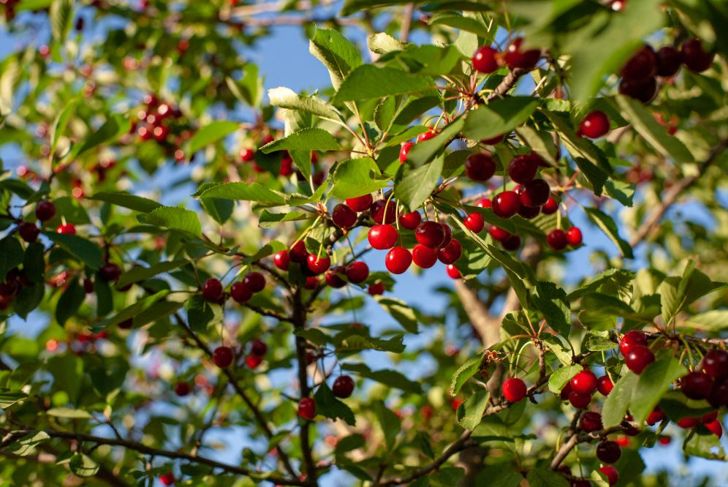The acerola plant is an evergreen shrub that produces small, round fruits that are red or orange and quite tart. Since the fruit is high in a variety of important nutrients and vitamins, it could be a valuable part of a healthy diet and some medical treatments.However, there are also some potential health risks that are important to understand before jumping completely on the acerola train.
Ascorbic Acid Content
Acerola is very high in ascorbic acid or vitamin C. This nutrient is vital to the formation of blood vessels, bones, and other basic building blocks of the human body. Compared to other fruits high in vitamin C, such as oranges, acerola has around 50 to 100 times more ascorbic acid per 100 grams of fruit.
Protective Properties
Because it’s high in vitamin C, acerola juice might be effective at preventing DNA damage. The concentrated liquid could also have anti-inflammatory effects. This means acerola fruit could play an important role in reducing the risk of cancer, particularly if the fruit is consumed alongside other fruits during childhood. However, more research is required to determine how strongly diet plays into cancer prevention.
Use in Cancer Treatment
Acerola has been shown to present cytotoxic activity against tumor cells, meaning compounds in the fruit are potentially toxic to cancerous cells in the human body. Because of this, scientists suggest the fruit may have applications in treating people with cancer.
Use as a Dietary Supplement
Since acerola is very high in vitamin C, the fruit has been used to create a variety of dietary supplements. Notably, the vitamin C found in acerola is better absorbed by the human body when compared to synthetic vitamin C supplements. However, since these dietary supplements often include additional ingredients such as sugar, it’s unclear how an acerola-based vitamin C supplement may impact consumers.
Harmful Effects in Children
Although acerola contains a variety of healthy nutrients, the fruit can have some harmful effects on humans if eaten whole. Specifically, some children have experienced intestinal inflammation after eating the entire fruit, including the seeds.Similarly, other children have undergone treatment for intestinal obstructions after eating the entire fruit.
Potential Skin Irritation
Acerola plants have very small stinging hairs on their leaves and portions of their stems. Touching these hairs while picking the fruit can result in skin irritation. However, there is a strong association between vitamin C deficiency and poor skin health, so consuming the acerola plant’s vitamin-rich fruit carefully might be beneficial.
Use Among Infants With Allergies
Since vitamin C is vital to a child’s bone and muscle development, scientists suggest that acerola juice may be a suitable source of the nutrient among infants. In particular, acerola juice might be a good alternative for infants who are allergic to orange juice.
Potassium Content
Acerola contains about 146 mg of potassium per 100 grams of fruit. This makes it potentially beneficial in efforts to prevent strokes, since high potassium intake has been linked to a decreased risk of high blood pressure.Acerola may also be effective at raising natural potassium intake through diet rather than through supplements.
Use in Heart Health
Potassium could help reduce the risk of strokes, while the fiber in acerola fruit could aid in heart disease prevention. Notably, fiber intake can help lower cholesterol levels and prevent heart disease when daily consumption targets are met.
The Acerola Fruit
Acerola is a cherry-like fruit that grows in warm, tropical environments such as Central and South America, Mexico, and the Caribbean. Also known as a Barbados cherry, the fruit grows on evergreen shrubs and changes from green to orange or red when ripe. In most cases, the fruit is very tart and acidic.

 Home
Home Health
Health Diet & Nutrition
Diet & Nutrition Living Well
Living Well More
More




















